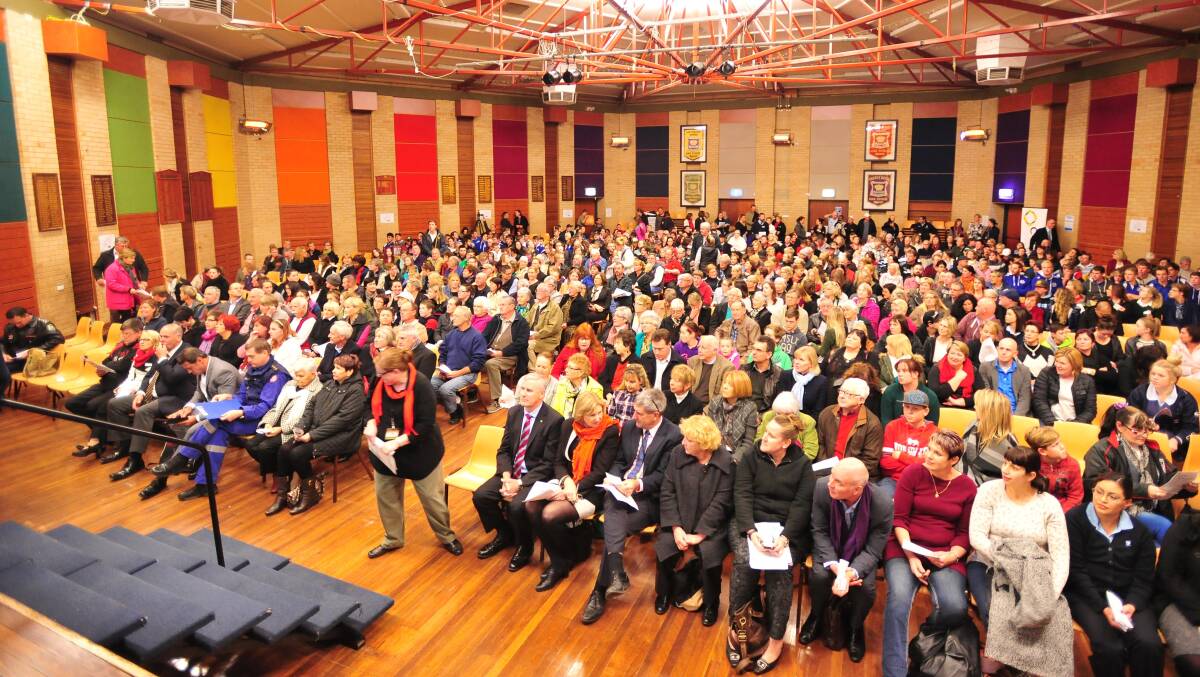
THE level of community concern about the rapid spread of the drug ice in Wagga was laid bare by the amount of people who attended a forum to discuss the drug on Thursday night.
Subscribe now for unlimited access.
$0/
(min cost $0)
or signup to continue reading
The public forum, held at Wagga High School, saw more than 500 people – one of the biggest community gatherings seen in recent years – come to hear from experts across a number of fields about the fight back against the insidious drug.
Those at the forum came from all walks of life – those young and old, from backgrounds ranging from sporting clubs to community representatives – representing the diverse base of concern about ice in Wagga.
The forum heard two former ice addicts share their experiences under the drug’s icy grip, with both painting similar pictures of how it caused their lives to spiral out of control.
Sharni Carpenter, a recovered addict from Gundagai, told the forum her substance abuse problem began at 15 with cannabis and alcohol after being bullied at school, and slowly spiralled out of control from there.
After she moved to Sydney, she began recreationally using speed.
“It made me feel confident, included wanted and needed,” Ms Carpenter said.
“For someone who had a fear of rejection ... this was a great outlet which at the time I thought was ok.”
That speed addiction led Ms Carpenter to lose her job and move back to Gundagai – which is “where it all went to s--t”, she said. She fell into an abusive relationship and began using ice.
I thought it was going to be a one time thing. I thought I could give it up at anytime but I was wrong,” she said.
Another former addict, Chelsea, choked back tears as she recalled a decade under the spell of ice and speed – 10 years which took her from a well-educated background with a loving family and fantastic job to filing for bankruptcy and being scheduled repeatedly under the Mental Health Act.
“Anyone can become an addict … you can go from having the world at your feet to living on the street,” she said.
A major concern raised at the forum, which became heated at times, was a lack of support services available for those trying to look after friends and family addicted to ice.
“For parents like me, for other people like me who are supporting people on this, you need community education where you’re taught how to respond to these people,” one woman put to the panel.

